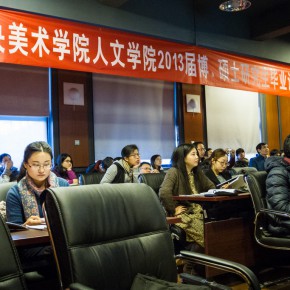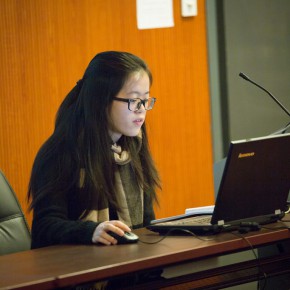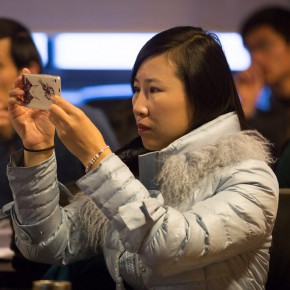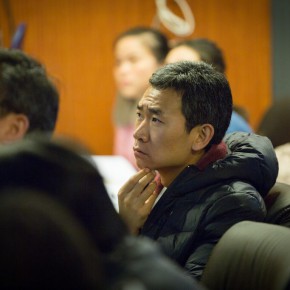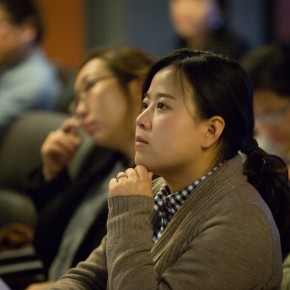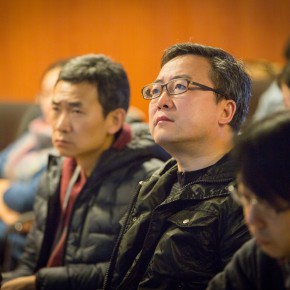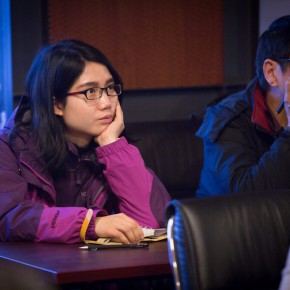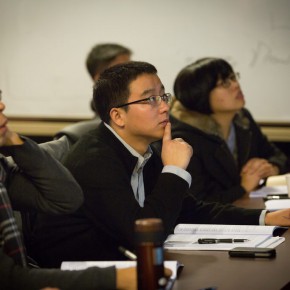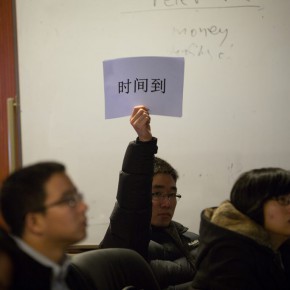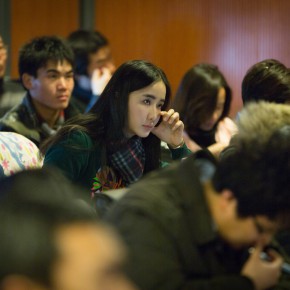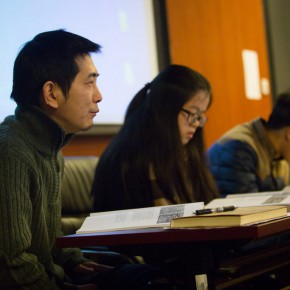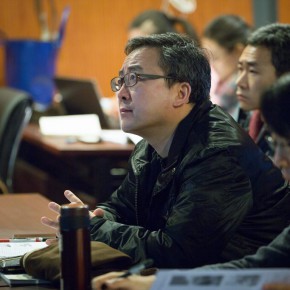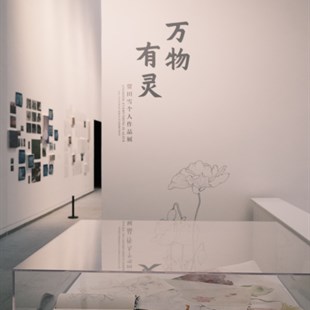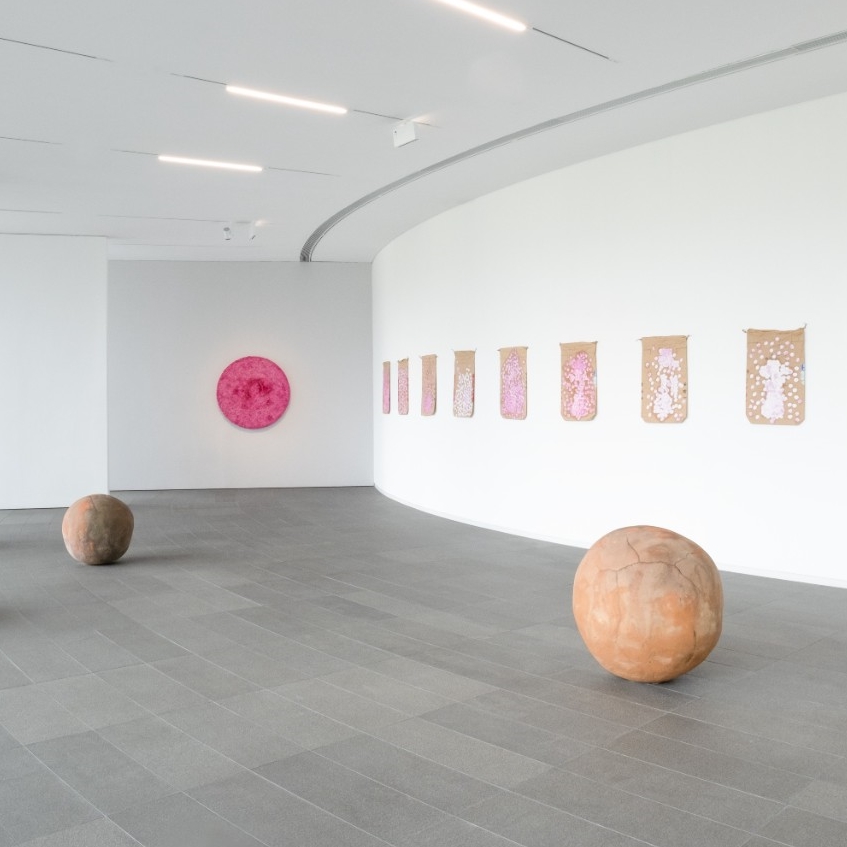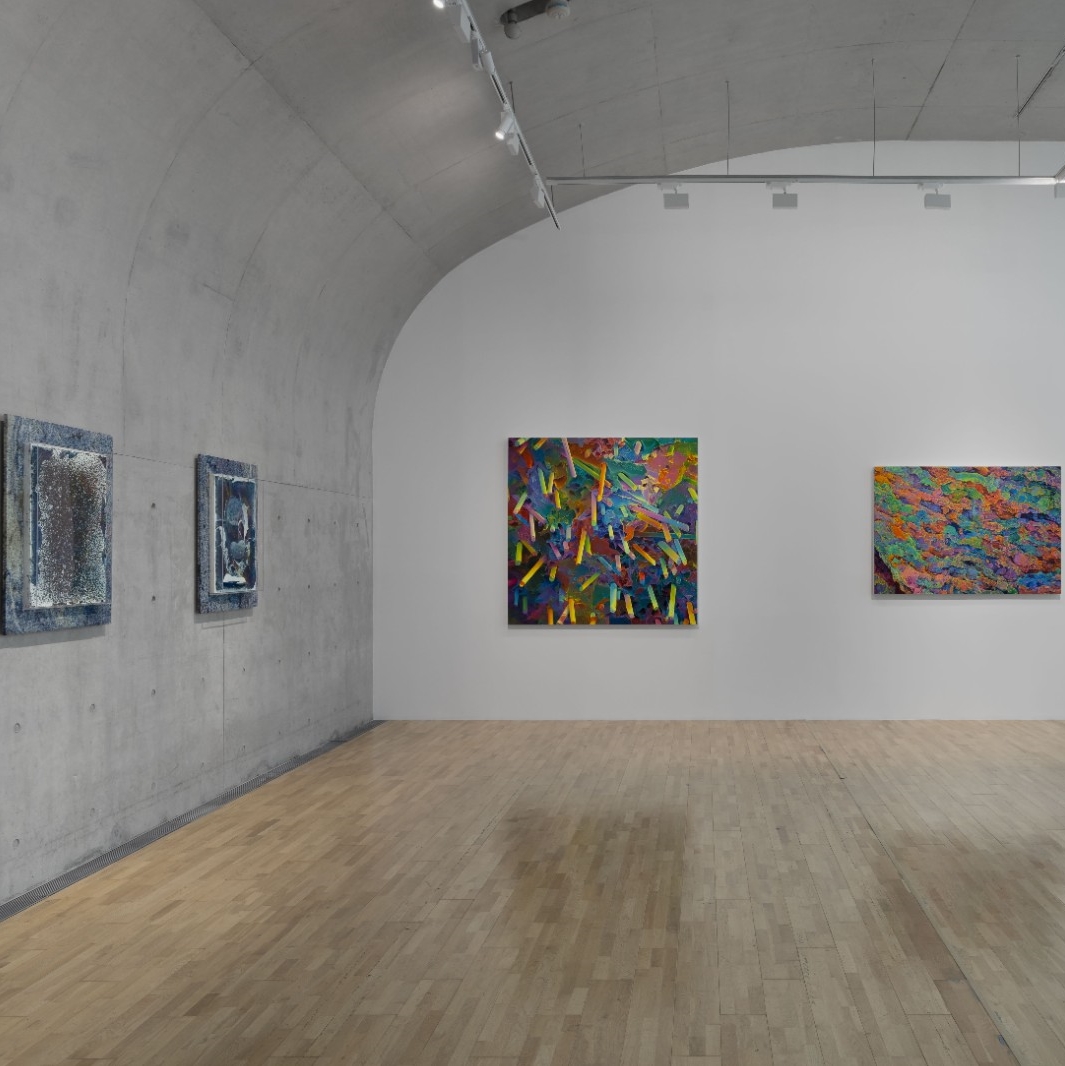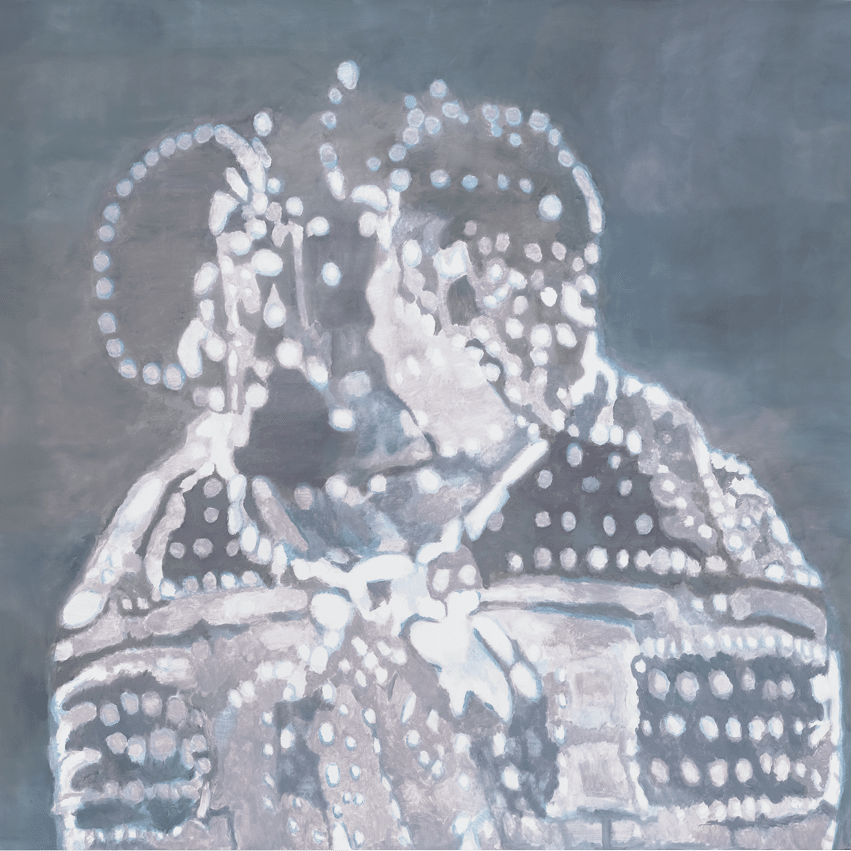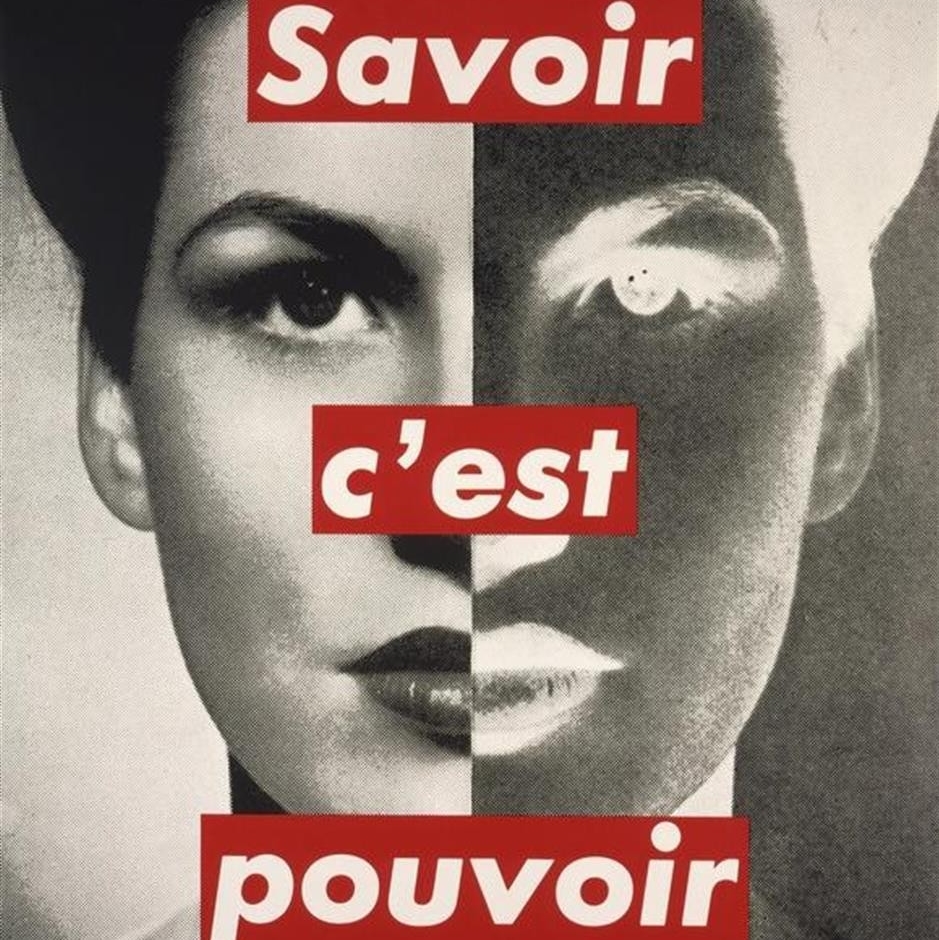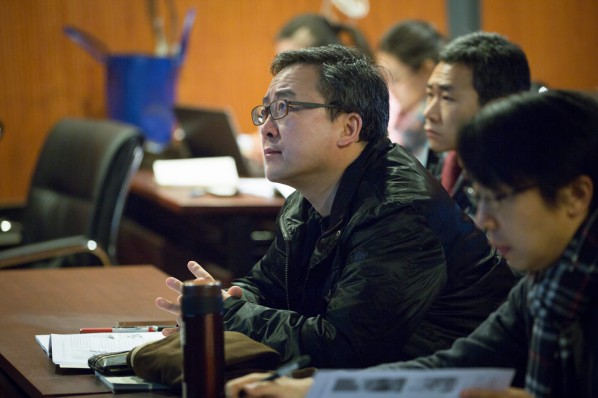
From 9:00 am through to 6:00 pm on January 8, 2014, directed and planned by Cao Qinghui, Associate Professor of the School of Humanities, Deputy Director of the Department of Art History, “National Beiping Art School and the Fine Arts of the Republic of China” Convocation for Final Reports of the Graduate Course was held at A306 of Building 14, CAFA. In addition to Cao Qinghui, participants included more than 20 graduate students and doctoral students, as well as two specially invited commentators: Yu Yang, Associate Professor of the School of Chinese Painting, CAFA, Ph.D Zhang Tao, the editor from “Art Study” of CAFA, as well as six specially invited observers from the publishers and promotion units including CAFA Art Museum, the Department of Propaganda of CAFA, CAFA ART INFO, “Rong Bao Zhai”, and Chinese Modern and Contemporary Art Literature Research Center.
Before the start of the report, Cao Qinghui introduced the idea and purpose for holding a convocation to the participating graduate students, commentators and observers, he said the reason why a relative academic seminar system was held and a convocation to finish the course in the form of “report and review” was because of several reasons: firstly, more professionally trained future scholars and researchers in everyday teaching, cultivating their more rigorous research attitude as well as the abilities for speech, expression, and replying; secondly, in reference to the system of professional academic conference, students could review each other, and specially invited commentators can deliver their review and advice, which both greatly enhance the effect of teaching, expanding the vision of the students, improving the result of research; thirdly, compared with the reported exhibitions on the teaching of other departments, the School of Humanities was often “silent”, thus holding such a convocation for final reports was an effective form to showcase the achievements of teaching.
It continued the teaching of the “National Beiping Art School and the Fine Arts of the Republic of China” series of activities, which was presided over by Cao Qinghui, this series of academic activities has continued for more than a year since late 2012. It includes two exhibitions (selected works which were created in the period of the National Beiping Art School in the Collections of CAFA Art Museum: Chinese painting and oil painting), an experts’ academic discussion, and 11 lectures.
In the second half of 2013, in view of the graduate students and doctoral students from the School of Humanities, Cao Qinghui opened a course that was entitled “National Beiping Art School and the Fine Arts of the Republic of China”, and this convocation presented the final reports by the students after they attended the 11 lectures for “High as Mountains and Long as Rivers – Teachers of National Beiping Art School”.
On the basis of the papers which were submitted by 15 graduate and doctorial students, the convocation was divided into six sections according to the direction of the research, including: “Beijing Painters’ Exchanges and Travelling in the Republic of China and the Cultural Meanings”, “Division of History into Periods, Researching and Appreciation of the Works of National Beiping Art School in the Collection of CAFA Art Museum”, “Cases in the Study of Transforming the Old into the New”, “Study on the History and Creation of Oversea Students of Fine Arts of Beijing in the Republic of China”, “Removing the Dust – Research on the Painters Who are on the Verge of Forgetting” and “Heritage and Derivation of the Bridge of the Painters”, students respectively gave a 15-minute report on the stage, and then students reviewed each other, and the audience could ask questions during each section, following that the reporters gave an open reply, finally, commentators offered a comment and direction according to the reports, reviews and replies throughout the whole section.
This form of teaching is an active attempt by the teachers from the School of Humanities, who are trying hard to provide a platform of divergence and communication so students can really touch and feel what academic research is, and how to do academic research. Dr. Yu Yang commented: As a report of the course, its academic component and consciousness of issues transcended to the general seminar, and it was like a brainstorm, not only the students benefited from it, but also it offered an opportunity for the participating faculty members to study and think.
Text: Zhu Li, Photo: Hu Zhiheng/CAFA ART INFO
Translated by Chen Peihua and edited by Sue/CAFA ART INFO


